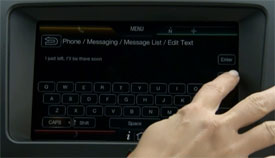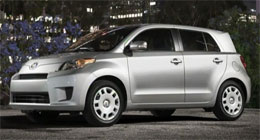Reliability Survey
Consumer Reports has released their 2011 Annual Car Reliability Survey with Ford showing a big drop in ranking due to complaints about new technology!
 The domestic brand sank from 10th to 20th place, the biggest drop among 28 brands. The 2012 Ford Explorer, Focus, and Fiesta all scored below average in reliability during their first year on the market. The main culprit was consumer difficulty with the MyFord Touch menu driven interface system. This was also the reason for Ford’s fall in the J.D. Power Initial Quality Study released this past summer.
The domestic brand sank from 10th to 20th place, the biggest drop among 28 brands. The 2012 Ford Explorer, Focus, and Fiesta all scored below average in reliability during their first year on the market. The main culprit was consumer difficulty with the MyFord Touch menu driven interface system. This was also the reason for Ford’s fall in the J.D. Power Initial Quality Study released this past summer.
Another problem involved Ford’s dual-clutch PowerShift transmission used in the Fiesta and Focus. Shifts by this fuel efficient automatic-manual gearbox tend to be rougher than the typical automatic. Also taking a stumble was General Motors. Buick, Cadillac, and GMC all dropped in this year’s rankings.
On the other hand, Chrysler moved up thanks to the new Chrysler 200, Dodge Durango, and Jeep Grand Cherokee.
 While Detroit brands mostly faltered, foreign nameplates returned to dominance. Japanese brands took the top 9 spots. First place goes to Toyota’s small-car brand Scion, followed by Lexus, Acura, Mazda, and Honda in the top 5.
While Detroit brands mostly faltered, foreign nameplates returned to dominance. Japanese brands took the top 9 spots. First place goes to Toyota’s small-car brand Scion, followed by Lexus, Acura, Mazda, and Honda in the top 5.
And in other news, BMW pulled the veil off a new generation of their iconic 3 Series. The all-new 2012 3 Series has a smoother look, with a larger, roomier body.-- while also watching its weight and becoming more economical. The length has increased 3.7-inches to 182, while vehicle weight is down by 88 pounds. North American cars will come standard with a more fuel efficient 2.0-liter turbocharged four-cylinder engine rated at 240 horsepower. A carryover 3.0- liter turbocharged inline six, with an ActiveHybrid 3 will also be available. A first-in-its-segment eight speed automatic is another new option. The interior has also been given a facelift with a more driver- oriented instrument panel and higher quality materials. BMW’s rotary iDrive controller will be standard. The new, sixth-generation 3 Series goes on sale in North America in February.
And finally, Saab owners can breathe a collective sigh of relief. The Swedish carmaker’s future is now secure. 100 percent of Saab’s parent company, Swedish Automobile, is being purchased by China’s Pang Da Automotive Trade Company and Zhejiang Youngman Lotus Automobile Company. Both are committed to investing over three-quarters of a billion dollars to rescue the brand.






